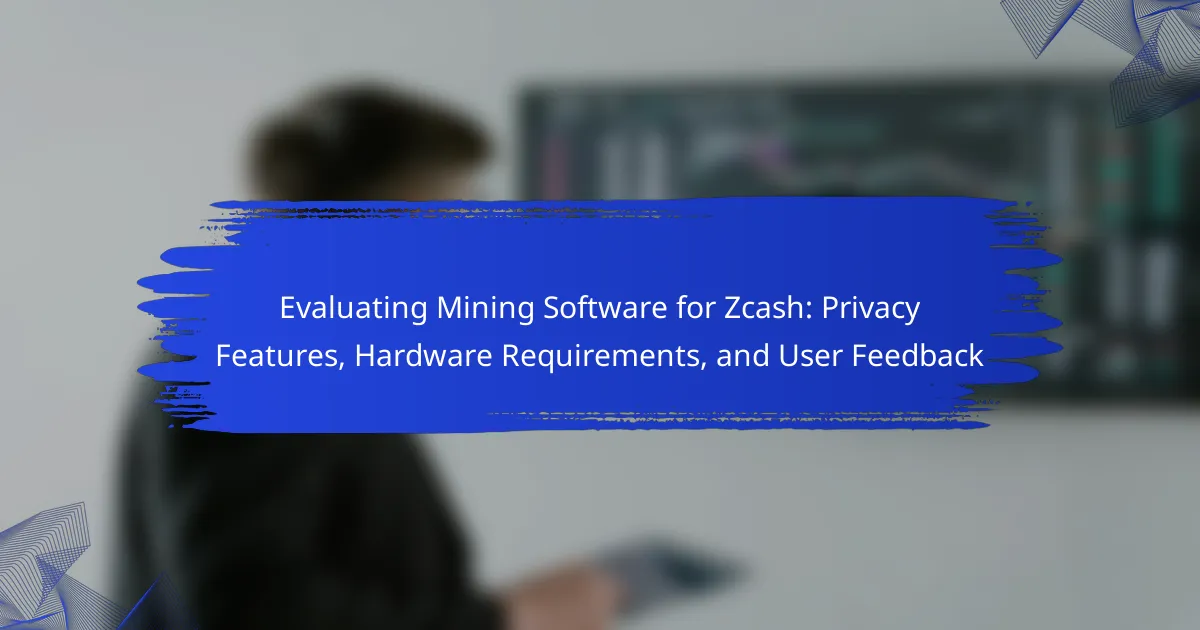Mining software for Zcash is crucial for users looking to mine Zcash cryptocurrency, as it connects miners to the Zcash network and facilitates transaction verification. This software is essential for managing mining hardware, optimizing performance, and providing real-time statistics and monitoring tools. Key options like EWBF’s CUDA Zcash Miner and Claymore’s ZCash AMD GPU Miner […]
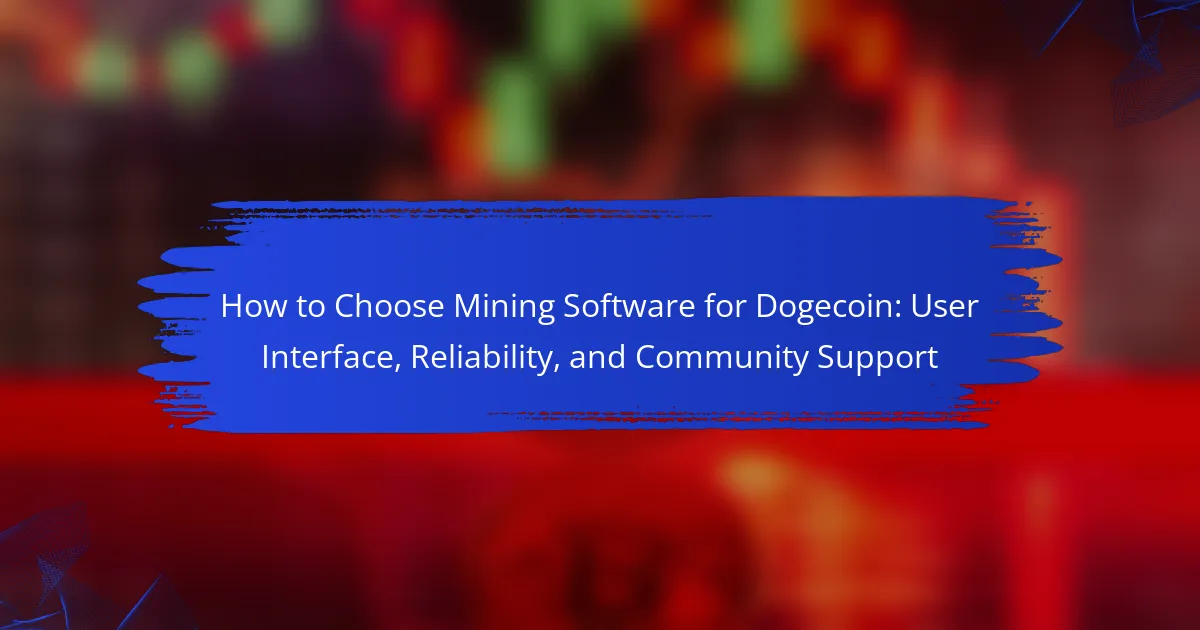
How to Choose Mining Software for Dogecoin: User Interface, Reliability, and Community Support
Choosing mining software for Dogecoin involves evaluating key factors such as user interface, reliability, and community support. A user-friendly interface enhances the mining experience for all skill levels, while reliability ensures stable performance without crashes. Community support is vital for troubleshooting and sharing insights among users. Popular software options like CGMiner and EasyMiner should be […]
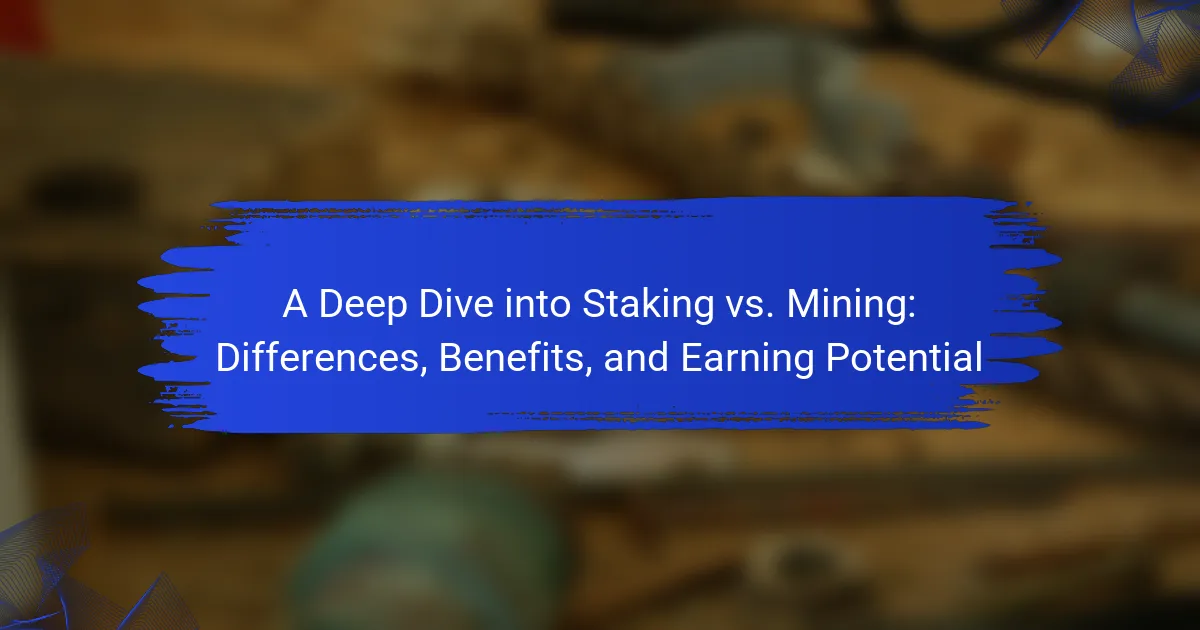
A Deep Dive into Staking vs. Mining: Differences, Benefits, and Earning Potential
Staking and mining are two distinct methods used for validating transactions and securing blockchain networks. Staking involves locking cryptocurrency to support network operations and earn rewards, while mining requires computational power to solve complex problems for transaction validation and block creation. This article examines the differences between staking and mining, highlighting their respective benefits, earning […]

Overview of FPGA Mining Equipment with Speed and Energy Efficiency Metrics
FPGA mining equipment utilizes Field Programmable Gate Arrays (FPGAs) for cryptocurrency mining, offering significant advantages in speed and energy efficiency compared to traditional mining hardware such as ASICs and GPUs. This equipment allows miners to achieve higher hash rates while consuming less power, resulting in lower operational costs. Key metrics for evaluating FPGA mining performance […]
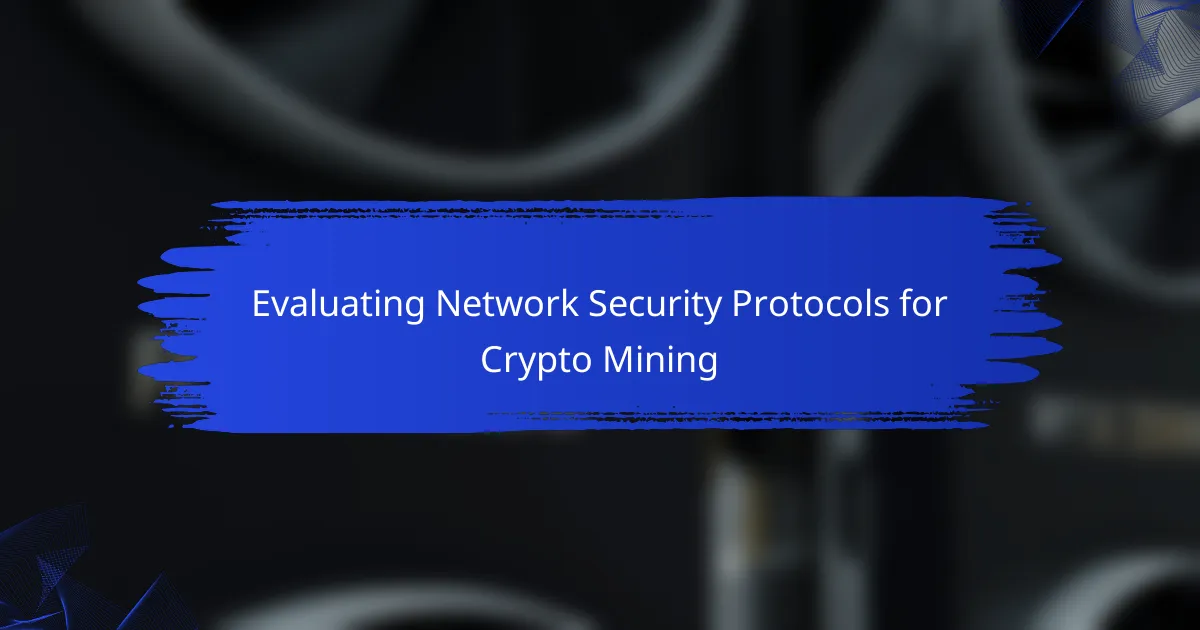
Evaluating Network Security Protocols for Crypto Mining
Network security protocols are essential frameworks that protect data and transactions in crypto mining operations. This article evaluates various protocols, including Secure Socket Layer (SSL), Transport Layer Security (TLS), and Internet Protocol Security (IPsec), which encrypt data and authenticate users to prevent unauthorized access. It outlines best practices for implementing these protocols, such as using […]

Evaluating Mining Pools with Fees and Payout Structures
Mining pools are collaborative groups of cryptocurrency miners that combine their computational resources to enhance the likelihood of successfully mining blocks. This article evaluates mining pools by examining their fee structures, which typically range from 1% to 3% of block rewards, and various payout methods such as Pay-Per-Share (PPS), Pay-Per-Last-N-Shares (PPLNS), and Pay-Per-Share with a […]
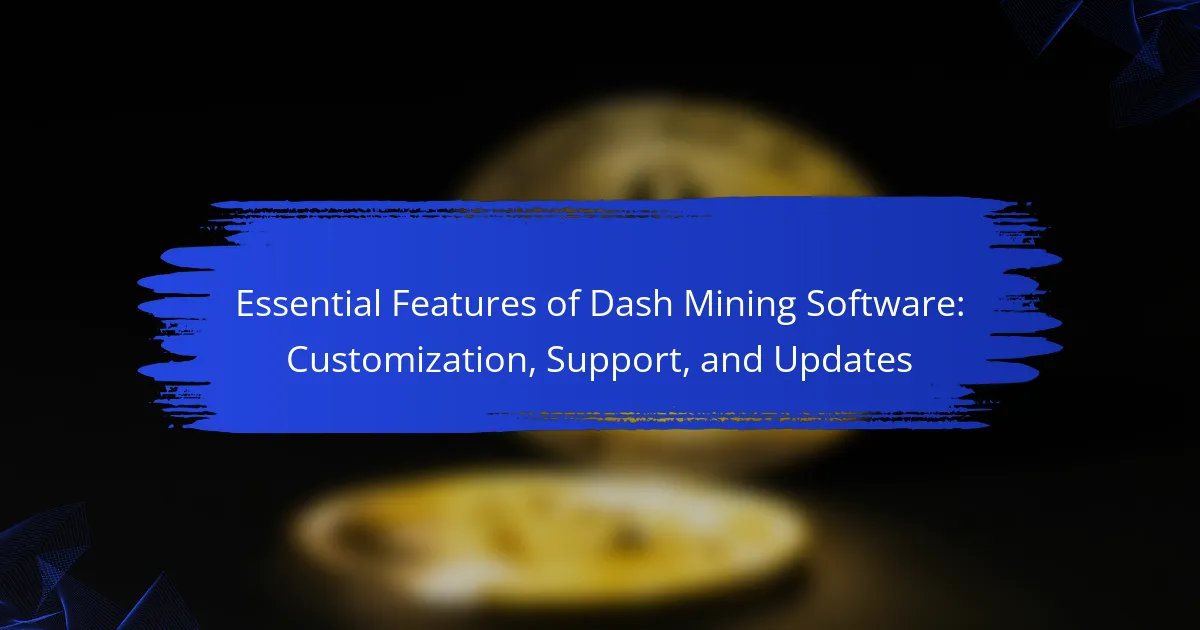
Essential Features of Dash Mining Software: Customization, Support, and Updates
Dash mining software is designed to optimize the cryptocurrency mining process through several essential features. Key functionalities include extensive customization options that allow users to configure settings for peak performance, compatibility with various mining hardware, and regular updates that enhance security and introduce new capabilities. The software also provides user-friendly interfaces for easier navigation and […]
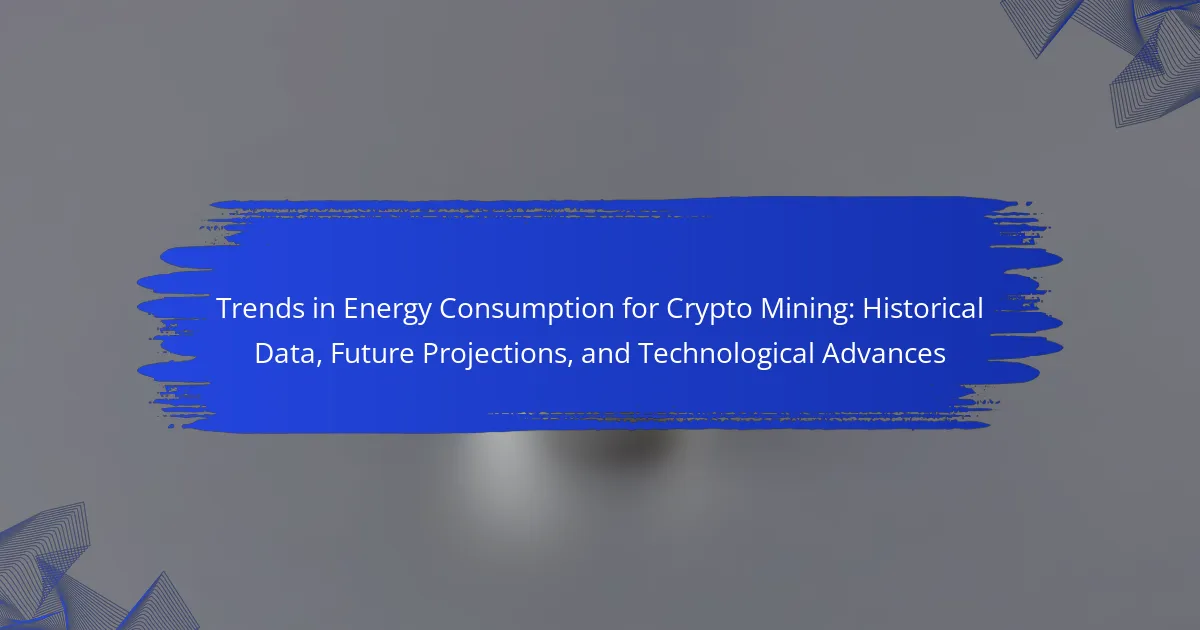
Trends in Energy Consumption for Crypto Mining: Historical Data, Future Projections, and Technological Advances
The article examines trends in energy consumption for cryptocurrency mining, focusing on historical data, future projections, and technological advancements. It highlights a significant shift towards energy-efficient practices, with an increasing reliance on renewable energy sources such as solar and wind. The Bitcoin Mining Council reports that 58.4% of Bitcoin mining operations utilize sustainable energy, reflecting […]
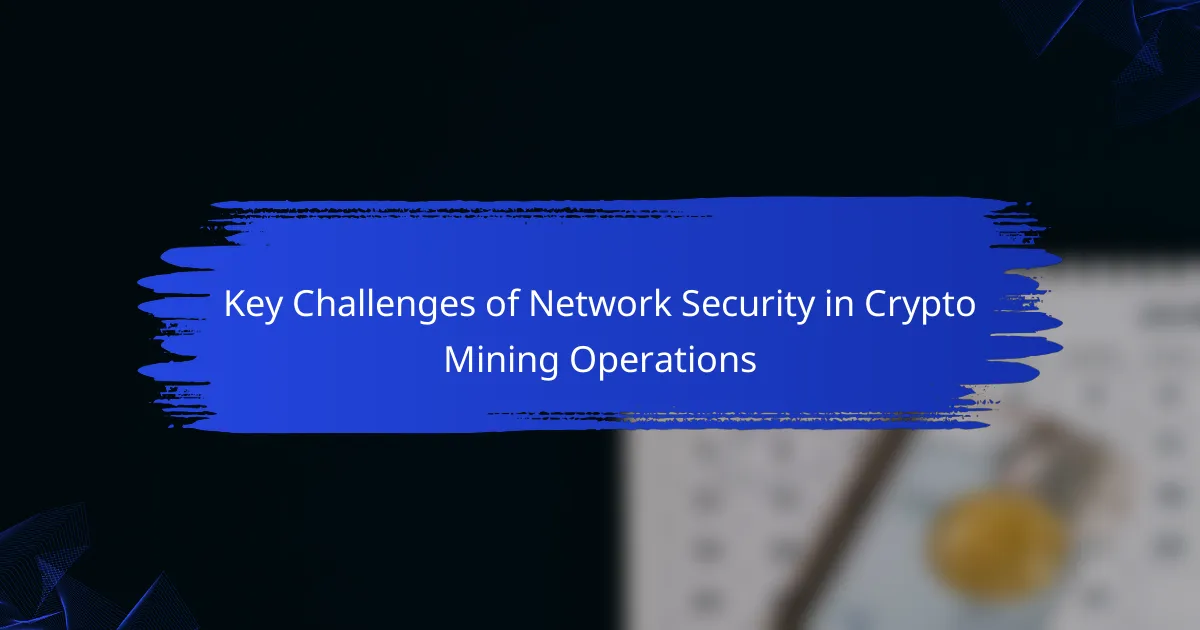
Key Challenges of Network Security in Crypto Mining Operations
Network security in crypto mining operations faces several key challenges, including the risk of cyberattacks, inadequate security protocols, and hardware vulnerabilities. Cyberattacks can result in substantial financial losses and disrupt operations, while insufficient security measures leave mining setups vulnerable to threats. Additionally, hardware vulnerabilities can be exploited, jeopardizing the functionality and integrity of mining rigs. […]
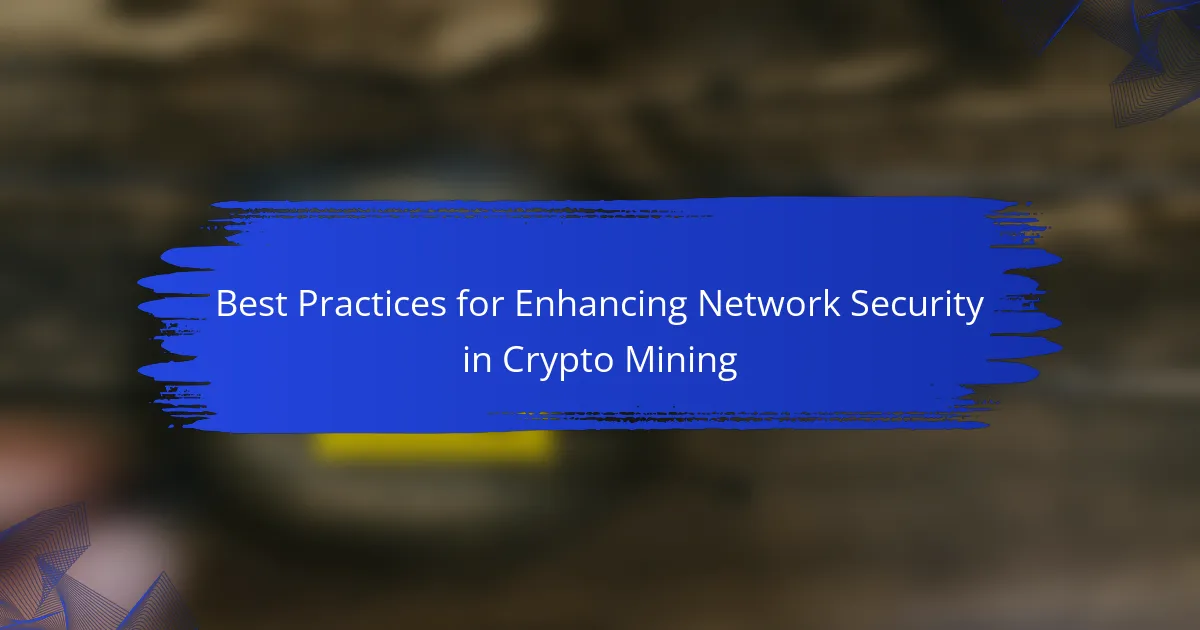
Best Practices for Enhancing Network Security in Crypto Mining
Network security in crypto mining operations is critical to protect against cyber threats. Key practices include implementing firewalls to control network traffic, using multi-factor authentication (MFA) for user access, and regularly updating software to address vulnerabilities. Employing Virtual Private Networks (VPNs) enhances data encryption, while regular security audits and intrusion detection systems (IDS) help identify […]
